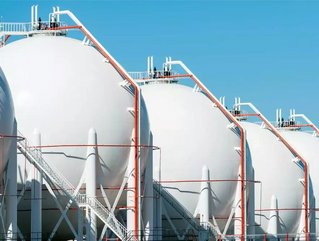Optimising energy storage and transport with Fujitsu

We continue to explore how energy companies can maximise transport and storage needs during these changing times.
While our first article outlined how Fujitsu is enabling digital transformation in the industry and our second indicated its broader mission to achieve sustainability, few might consider how many separate avenues exist for energy companies to streamline their business.
The transportation and storage of oil and gas, with its associated costs and fees, is certainly one of the more challenging aspects, particularly as any amended strategy will still need to factor in speed, safety and scheduling predictability while still keeping to the lowest cost possible.
However, this goal, as with so many others already covered, is highly achievable if energy companies follow Fujitsu’s advice.
Assessing the scarcity of storage
Although the quest for greater efficiencies for transport and storage has always existed to a degree, the fluctuating prices of fossil fuels have made it a newly strategic method for mitigating against profit losses.
The current climate has made this difficult: an article by Brown Brothers Harriman found that LOOP Crude Oil Storage Futures’ costs had risen 500% (100,000 barrels of crude stored for one month previously cost US$7,000, but, after 20 April, had risen to $55,000).
Such an increase is unlikely to have occurred without an associated demand, strongly indicating that storage space is scarce and unsold product is copious.
This analysis is borne out by Reuters, which found a 50 to 100% increase in lease costs for oil tankers in Canada, the Caribbean, the Baltic and Singapore, not to mention a new 50 cents per barrel rate in Cushing, Oklahoma for March - a 150% increase on February’s figure.
Strategic diversity and quantum-inspired computing
Instead of allowing themselves to be buffeted by the caprice of the market, Fujitsu advocates that energy companies take a far more proactive and creative approach which favours strategic diversity and sustainable economics.
After all, a multiplicity of storage options are already available; usage simply needs to be optimised correctly:
“Energy producers employ a variety of transportation modes to transport huge volumes of fuel every day. Which mix offers the safest and most cost-effective transport today? What about next week? Next month?”
Assessing the available options and moving between different varieties of storage (shipping, tanks, terminals, underground, etc) can create arbitrage opportunities which contribute significantly to an overall cost optimisation strategy.
For example, the US Department of Energy highlights the monetary benefit of storing crude oil in salt domes as opposed to above ground tanks: $3.50 per barrel for the former and upwards of $15 for the latter.
However, in an ever-shifting economic landscape, maintaining a flexible-yet-focused method for managing such efficiencies can be difficult:
“These kinds of logistical problems, involving hundreds or thousands of variables, are among the most difficult mathematical equations to solve [...] they can have quintillions of possible solutions,” Fujitsu states.
“The mathematics needed to find the quickest, most cost-effective allocation is well beyond what the fastest conventional computing systems can provide. There is, however, one technology model perfectly suited to answering these questions: quantum-inspired computing.”
Inspired by the key characteristics of quantum computing, Fujitsu’s Quantum-inspired Digital Annealer solution can evaluate multiple potential options simultaneously and deliver incredibly fast results; The Digital Annealer is the perfect tool for helping companies solve storage and transport challenges at a time when they are most needed.
Capable of higher performance processing than classical computers, the Digital Annealer can “substantially reduce costs and delays” through analysis and help shape the crucial real-world decision making that is necessary to sustain the modern energy sector.
Read more about how Fujitsu’s Quantum-Inspired Digital Annealer and optimisation capabilities can help your business achieve greater results by downloading the company’s whitepaper.






